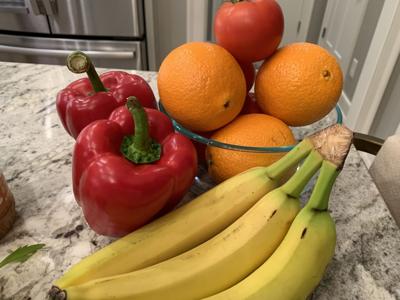Revised WIC Regulations Offer Increased Funding for Fresh Produce and Broaden Dietary Options

The recent revisions to the federal Women, Infants, and Children (WIC) program, aimed at aiding millions of low-income mothers, infants, and young children with grocery assistance, will soon prioritize an increased consumption of fruits, vegetables, and whole grains. Additionally, the updated regulations broaden the variety of foods available, incorporating options from diverse cultural backgrounds.
Announced by the Food and Nutrition Service on Tuesday, these final rule changes will come into effect within the next two years, with certain exceptions. Among the notable modifications is the permanent increase in monthly cash vouchers for fruits and vegetables, initially introduced during the COVID-19 pandemic. Furthermore, participants will now have the option to include canned fish, fresh herbs, and lactose-free milk in their purchases. The adjustment to the voucher allocation is expected to be implemented by June.
Agriculture Secretary Tom Vilsack emphasized the significance of the emphasis placed on fruits and vegetables in the updated regulations, citing it as a crucial component of a healthy diet. The WIC program, which cost a little over $7 billion and assisted an average of about 6.6 million low-income individuals monthly in 2023, aims to supplement the food budgets of pregnant, nursing, and postpartum women, as well as young children up to age 5. However, enrollment rates remain lower than expected, with only about half of eligible individuals currently enrolled.
Under the revised guidelines, monthly vouchers for fruits and vegetables will see an increase in value, with $26 allocated for children aged 1 through 4, $47 for pregnant and postpartum women, and $52 for breastfeeding women. Additionally, the changes expand access to whole grains such as quinoa, wild rice, and millet, as well as introducing foods like teff and whole wheat naan. However, monthly allowances for juice will be reduced or removed, and milk allowances will also be adjusted.
Despite these advancements, the final rule did not include a proposed change to add peanut products to the list of allowable foods for babies aged 6 to 11 months, aimed at preventing peanut allergies. While research supports early peanut introduction to reduce allergy risks, federal officials deemed this change to be beyond the scope of the final rule. This decision has been met with disappointment from allergy experts, who highlight the potential to exacerbate existing disparities in food allergy prevalence, particularly among children from marginalized communities.

:max_bytes(150000):strip_icc()/Can-Strength-Training-Help-Reduce-Cardiovascular-Disease-Risk-236f4af97bce4c2cb68f44987770d07b.jpg)



